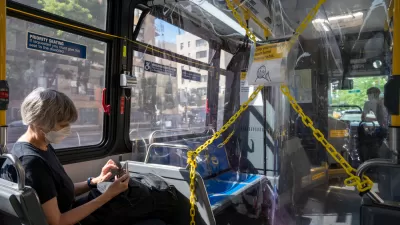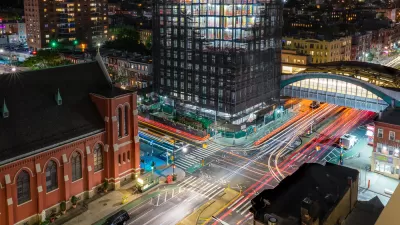A scathing critique of city planning, and the special interests that hold the system in thrall, in New York City.

Brad Lander and Antonio Reynoso write a strong critique of planning in New York City, arguing that the current system is ill-equipped to face the most pressing challenges of the contemporary city.
It’s clear that we need a better way to make infrastructure and land-use decisions that take climate change, affordability, and the challenges of growth seriously. Our piece-meal planning system is not up to the task.
Currently, the process of developing a capital plan to invest in our infrastructure constitutes just making a big list – a list that is in no way informed by plans for rezoning or development. How can we plan which neighborhoods should get resilient infrastructure like levees and seawalls when land-use and growth decisions are happening elsewhere? Shouldn’t we include capital budgeting for infrastructure like transit and schools as part of the process of planning for the new residential growth that will require it?
Meanwhile, New York City’s Uniform Land Use Review Procedure (ULURP) is a reactive, project-by-project process for considering changes – bereft of strategic vision, shared values, or a connection to long-term infrastructure planning.
The article also coins a new term for characterizing planning in the city, calling it a "REBNY vs. NIMBY Doom Loop." REBNY standing for Real Estate Board of New York, "who profit on each development, and therefore rarely worry about which ones make long-term sense for the public good," and NIMBY standing for Not In MY Back Yard, described as advocacy that "leaves no way to figure out where and how the growth we need to address the scale of the housing crisis should take place."
FULL STORY: Leaving the REBNY vs NIMBY Doom Loop

Maui's Vacation Rental Debate Turns Ugly
Verbal attacks, misinformation campaigns and fistfights plague a high-stakes debate to convert thousands of vacation rentals into long-term housing.

Planetizen Federal Action Tracker
A weekly monitor of how Trump’s orders and actions are impacting planners and planning in America.

In Urban Planning, AI Prompting Could be the New Design Thinking
Creativity has long been key to great urban design. What if we see AI as our new creative partner?

Florida Seniors Face Rising Homelessness Risk
High housing costs are pushing more seniors, many of them on a fixed income, into homelessness.

Massachusetts Budget Helps Close MBTA Budget Gap
The budget signed by Gov. Maura Healey includes $470 million in MBTA funding for the next fiscal year.

Milwaukee Launches Vision Zero Plan
Seven years after the city signed its Complete Streets Policy, the city is doubling down on its efforts to eliminate traffic deaths.
Urban Design for Planners 1: Software Tools
This six-course series explores essential urban design concepts using open source software and equips planners with the tools they need to participate fully in the urban design process.
Planning for Universal Design
Learn the tools for implementing Universal Design in planning regulations.
Gallatin County Department of Planning & Community Development
Heyer Gruel & Associates PA
JM Goldson LLC
City of Camden Redevelopment Agency
City of Astoria
Transportation Research & Education Center (TREC) at Portland State University
Jefferson Parish Government
Camden Redevelopment Agency
City of Claremont





























